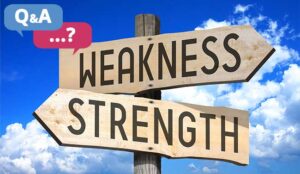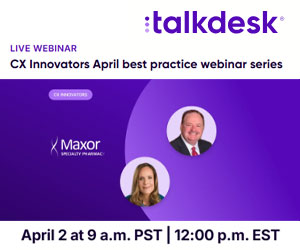Evaluating the strengths and weaknesses of call centre agents is essential for improving team performance and ensuring high-quality customer interactions.
By assessing both individual and group capabilities, managers can identify areas for development and implement targeted training.
Rumana asked our community of industry professionals for insights into effective assessment methods:
“I have been assigned to study the strengths and weaknesses of the teams of agents in the call centre, on an individual and group level. I wondered if anyone had any suggestions of aptitude or psychometric tests that could be included along with an analysis of the KPIs for the last quarter.”
We have combined their responses, looking at both skill and knowledge levels, the role of psychometric testing, and the best methods for gaining a well-rounded understanding of agent performance.
3 Ways to Assess the Strengths and Weaknesses of Call Centre Agents
1. Break Down Strengths and Weaknesses
When evaluating call centre agents, their capabilities can generally be divided into two key areas: skills and knowledge.
Measuring Skills
Skills are practical abilities that contribute to an agent’s performance, such as communication, problem-solving, and efficiency.
Skills can be measured using a combination of:
- Call Monitoring – Listening to recorded or live calls to assess handling techniques, tone, and issue resolution.
- On-the-Job Observation – Supervisors or trainers can observe agents in real time to assess their interactions and ability to handle customer queries.
- Team Contributions – Looking at how agents collaborate, share knowledge, and contribute to team goals.
- Call Metrics – Analysing key performance indicators (KPIs) such as average handling time (AHT), first call resolution (FCR), and customer satisfaction scores (CSAT).
- Controlled Testing – Running practical exercises or role-playing scenarios to test response times and service quality.
- Trainer Feedback – Gathering input from training staff to understand areas of improvement and agent progression over time.
Measuring Knowledge
Knowledge refers to an agent’s understanding of products, services, policies, and procedures. It is equally important in ensuring accurate and consistent service.
Knowledge can be measured through:
- The same methods as above, with a stronger emphasis on training results and post-training assessments.
- Knowledge Checks – Short quizzes or periodic assessments to ensure agents retain key information.
- Customer Interactions – Reviewing whether agents provide correct and complete information during calls.
- System Navigation – Evaluating how effectively agents use CRM and support systems to retrieve relevant information.
By combining these methods, businesses can develop a real-time and objective analysis of agent strengths and areas for development.
2. Explore Psychometric and Aptitude Testing
While real-time assessments provide a clear picture of current performance, aptitude and psychometric tests offer insights into behavioural tendencies and potential capabilities.
These tests are commonly used at the recruitment stage to assess whether a candidate is suited to a call centre role. However, they can also be beneficial for ongoing development when used alongside performance metrics.
It is important to note that administering psychometric tests typically requires accreditation to ensure they are interpreted correctly and ethically.
What Do Psychometric Tests Measure?
Psychometric tests generally assess:
- Cognitive Abilities – Problem-solving skills, reasoning, and comprehension.
- Personality Traits – How an agent is likely to handle stress, teamwork, and customer interactions.
- Emotional Intelligence – The ability to manage emotions and empathise with customers.
- Behavioural Tendencies – Identifying strengths such as resilience and adaptability.
While these tests provide useful insights, they offer a predictive rather than an actual measure of an agent’s strengths.
Unlike skills and knowledge assessments, they do not show real-time performance but instead indicate likely behaviours and competencies.
3. Combine Methods for a Well-Rounded Assessment
For the most accurate understanding of agent strengths and weaknesses, a multi-faceted approach is recommended.
Relying solely on KPIs may overlook behavioural factors, while psychometric testing alone does not reflect an agent’s actual day-to-day performance.
A well-balanced assessment strategy should include:
- Regular Performance Monitoring – Using KPIs and call observations to measure skills and knowledge.
- Training Evaluations – Ensuring knowledge is retained and applied in real-world scenarios.
- Psychometric or Aptitude Testing (where Appropriate) – To identify behavioural tendencies and potential for development.
- Feedback From Trainers and Supervisors – Providing qualitative insights into agent performance and growth.
- Coaching and Role-Playing Exercises – Implementing regular coaching sessions and role-play scenarios to simulate challenging customer interactions, reinforce best practices, and improve confidence.
By integrating these methods, managers can create targeted development plans, enhance training programmes, and build a high-performing call centre team.
For more information on improving call centre agents performance, read these articles next:
- How to Improve Agent Performance in the Call Centre – With a Checklist
- How to Use Mock Calls to Improve Agent Performance – With Free Exercises
- 10 Feedback Examples to Improve Contact Centre Performance
Author: Jonty Pearce
Reviewed by: Hannah Swankie
Published On: 12th Apr 2022 - Last modified: 24th Feb 2025
Read more about - Call Centre Questions, Agent Performance





































